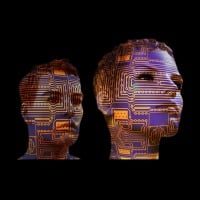Bestselling historian Yuval Noah Harari predicts that advances in artificial intelligence will lead to a class of eternally useless human beings. In his new book, Homo Deus: A Brief History of Tomorrow, he sites smarter artificial intelligence as one of the 21st century’s most serious threats. This book is not released to the public until September, however, early copies have been circulated. It follows up on his previous book, Sapiens: A Brief History of Humankind, which was an international bestseller. Although the book has humans developing godlike powers, it also suggests that humans may end up unemployed, with little purpose in life, spending most days hooked into electronics. Harari calls it “the rise of the useless class”, his theory being that as AI gets smarter, more people will be subsequently pushed out of the job market. Since it will be unclear what learned skills will still be relevant at the age of 40, nobody will know what to study in college. In no time, billions of humans will have no means of being productive in the workplace. “I’m aware that these kinds of forecasts have been around for at least 200 years, from the beginning of the Industrial Revolution, and they never came true so far. It’s basically the boy who cried wolf,” says Harari. “But in the original story of the boy who cried wolf, in the end, the wolf actually comes, and I think that is true this time.”
According to Harari, humans have two types of ability that make them useful : physical and cognitive ones. Machinery took over many jobs requiring strength and repetitive actions during the Industrial Revolution, however, not to an overwhelming degree. Up until recently, machines could not compete with human’s cognitive powers. That time seems to be coming to a close, however. AIs are now starting to outperform people cognitively. “And while new types of jobs will certainly emerge, we cannot be sure”, says Harari, “that humans will do them better than AIs, computers, and robots.”
n regards to his definition of useless, Harari says “I choose this very upsetting term, useless, to highlight the fact that we are talking about useless from the viewpoint of the economic and political system, not from a moral viewpoint,” “Modern political and economic structures were built on humans being useful to the state: most notably as workers and soldiers”, Harari continues. “With those roles taken on by machines, our political and economic systems will simply stop attaching much value to humans”. He adds “What might be far more difficult is to provide people with meaning, a reason to get up in the morning. For those who don’t cheer at the prospect of a post-work world, satisfaction will be a commodity to pay for: our moods and happiness controlled by drugs; our excitement and emotional attachments found not in the world outside, but in immersive VR.”
What can be done to avoid this? “First of all, take it very seriously,” Harari says. “And make it a part of the political agenda, not only the scientific agenda. This is something that shouldn’t be left to scientists and private corporations. They know a lot about the technical stuff, the engineering, but they don’t necessarily have the vision and the legitimacy to decide the future course of humankind.”
Rice University computer scientist Mose Vardi is a member of both the National Academy of Engineering and the National Academy of Science, as well as the director of Rice’s Ken Kennedy Institute for Information Technology. Vardi expects that within 30 years, machines will be capable of doing almost any job that a human can. Says Vardi “I believe that society needs to confront this question before it is upon us: If machines are capable of doing almost any work humans can do, what will humans do?” Vardi has stated that some people believe that future advances in automation will benefit humans in the long run, just as automation turned out to be beneficial to society, following the Industrial Revolution. “A typical answer is that if machines will do all our work, we will be free to pursue leisure activities,” Vardi said. However, even if the world economic system can be restructured to enable billions of people to live lives of leisure, Vardi questions whether it would benefit humanity. “I do not find this a promising future, as I do not find the prospect of leisure-only life appealing. I believe that work is essential to human well-being,” he said. “Humanity is about to face perhaps its greatest challenge ever, which is finding meaning in life after the end of ‘In the sweat of thy face shalt thou eat bread.'” Vardi adds that “We need to rise to the occasion and meet this challenge before human labor becomes obsolete”, he said..
Here’s some final food for thought, regarding the impact that the ‘useless’ or ‘leisure’ class will have on longevity. Studies have shown that having a strong sense of purpose may lower one’s risk of death, heart disease, or stroke. It has also been shown that retirees who stop working relatively late in life may be less likely to develop Alzheimer’s Disease. How will widespread unemployment affect longevity and quality of life as we age? Will technology be able to counteract the detrimental effects that would result? As both Harari and Verdi point out, we need to consider the impact that AI will ultimately have on our sense of purpose sooner, rather than later.
Final analysis: Stay on top of whatever you’re uniquely good at and keep learning new skills to stay ahead of the AI tsunami, which will usher in the useless/leisure class by 2026




